The art of soft power: How ‘certificate diplomacy’ is changing foreign policy
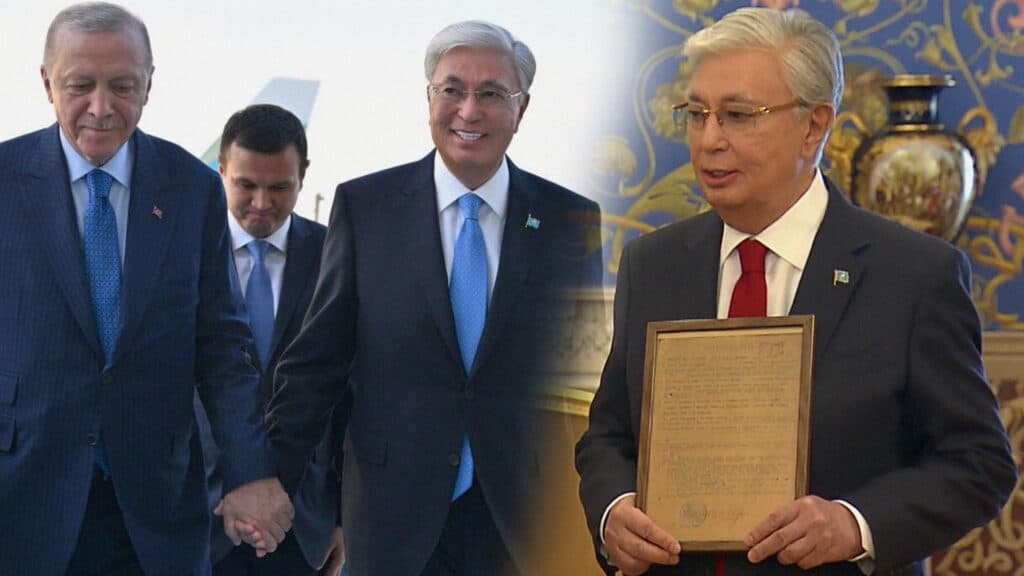
In international diplomacy, the exchange of high-level state decorations — such as orders and medals — between heads of state is a longstanding tradition. In contrast, or perhaps as a complement, a newer practice that has lately attracted media attention is the gifting of symbolic documents, often in the form of personally significant certificates.
Traditional decorations
One of the most notable moments during Kazakh President Kassym-Jomart Tokayev’s recent official visit to Turkey was his receipt of the country’s highest state honor, Devlet Nişanı, the Order of the State of the Republic of Turkey.
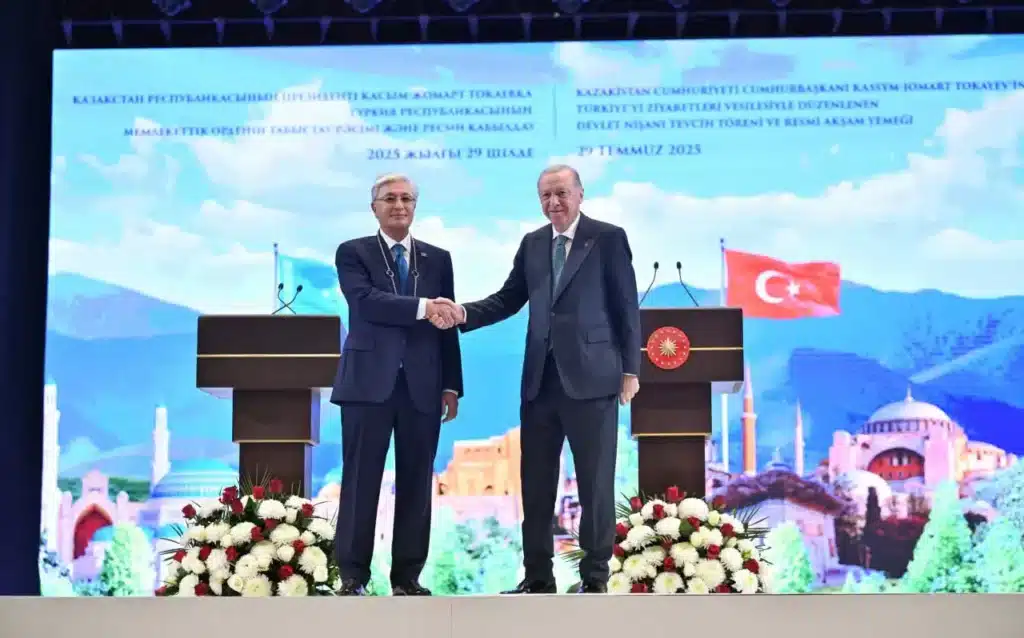
At the official ceremony in Ankara, Tokayev expressed gratitude to Turkish President Recep Tayyip Erdogan and the people of Turkey for the honor. He noted that he had previously declined both domestic and foreign awards but made an exception in this case. Tokayev said the gesture marked a significant step in strengthening the most important asset shared by the two nations: the bonds of friendship and brotherhood. The award, he added, reflects a mutual commitment to deepening the strategic partnership between Kazakhstan and Turkey.
Notably, Erdogan is also a recipient of Kazakhstan’s highest state honor. In 2012, then-President Nursultan Nazarbayev awarded him the Altyn Qyran Order (Order of the Golden Eagle) while he was serving as Turkey’s prime minister.
Previous recipients of the Devlet Nişanı include Uzbek President Shavkat Mirziyoyev (2024), Azerbaijani President Ilham Aliyev (2013) and U.S. President Bill Clinton (1999).
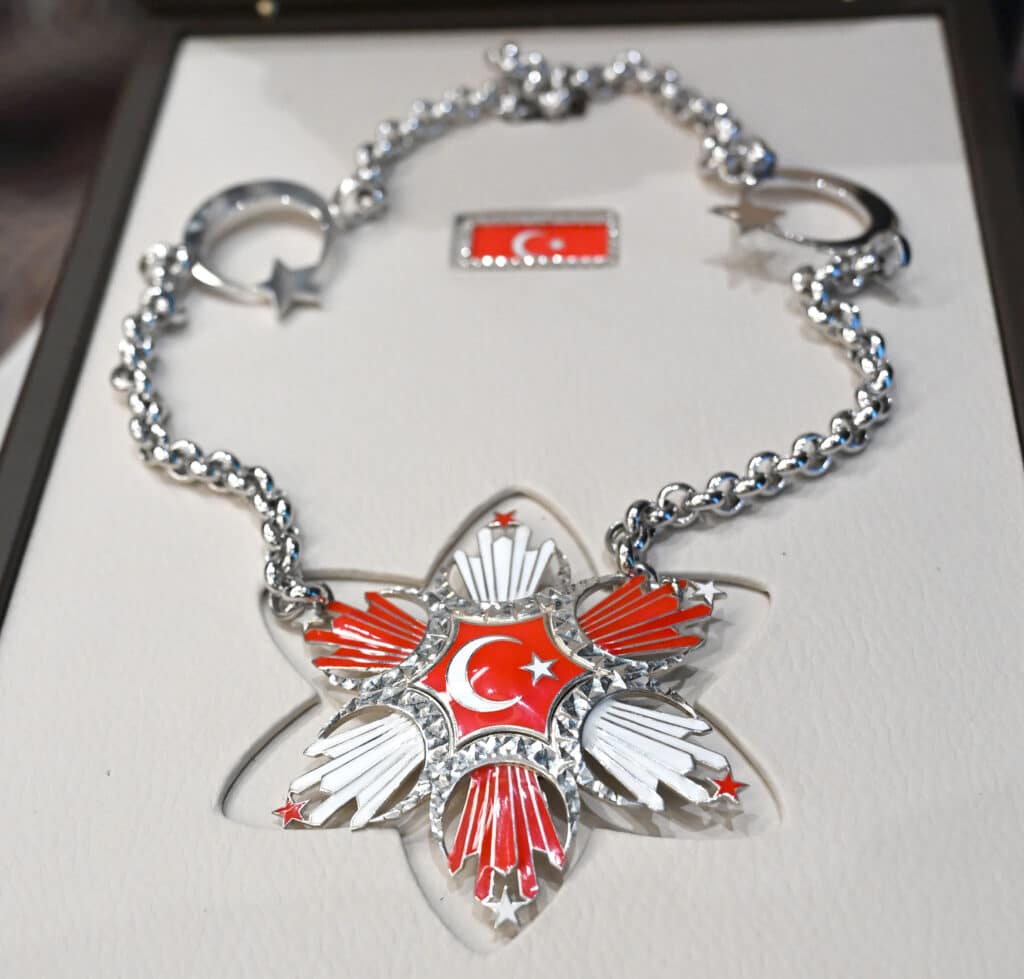
While such state decorations remain the highest form of diplomatic currency, serving to solidify alliances, they are largely seen as formal and ceremonial in nature.
«Certificate diplomacy»
In contrast to the formal grandeur of state medals, a new and more personalized form of diplomatic gifting has recently gained attention: «certificate diplomacy.» This approach forgoes traditional honors in favor of gifts with deep personal significance — typically copies of archival documents tied to a leader’s family history or identity.
The strategy shifts the focus from the state-to-state relationship to the personal profile of the recipient, aiming to build rapport through emotional and historical resonance.
One prominent example of «certificate diplomacy» involving Kazakh President Tokayev took place on May 9, 2025. After a ceremonial reception marking the 80th anniversary of Victory in the Great Patriotic War, Russian President Vladimir Putin presented Tokayev with an official award citation for his late father, prominent Kazakh writer Kemel Tokayev.
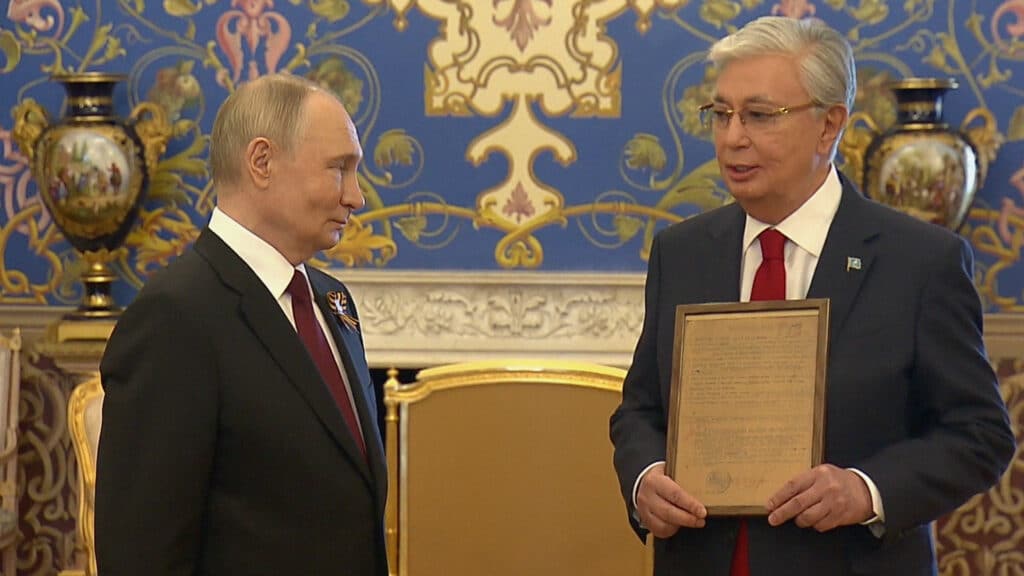
The document, retrieved from the archives of Russia’s Ministry of Defense, recognized his service as a Guards Sergeant during the war and certified that Kemel Tokayev was awarded the Order of the Patriotic War, 2nd class, for his extraordinary courage during the liberation of Poland in 1945.
Following the collapse of the Soviet Union in 1991, Russia inherited the majority of the USSR’s central state archives, including its extensive military records. As a result, documentation on the millions who served in the Soviet armed forces, regardless of their ethnic background or nationality, is now primarily housed in Russian institutions.
After the war, Tokayev’s father became a writer, specializing in detective and adventure fiction. His profound wartime experiences shaped his work, making him a beloved author.
Another widely publicized example of gifting a certificate was German Chancellor Friedrich Merz’s present to U.S. President Donald Trump. During their first face-to-face meeting at the White House on June 5, Merz presented Trump with a gilded, framed copy of the president’s grandfather’s birth certificate.
The gold-encased document paid tribute to Friedrich Trump, who was born in Kallstadt, Germany, in 1869 and later immigrated to the U.S.
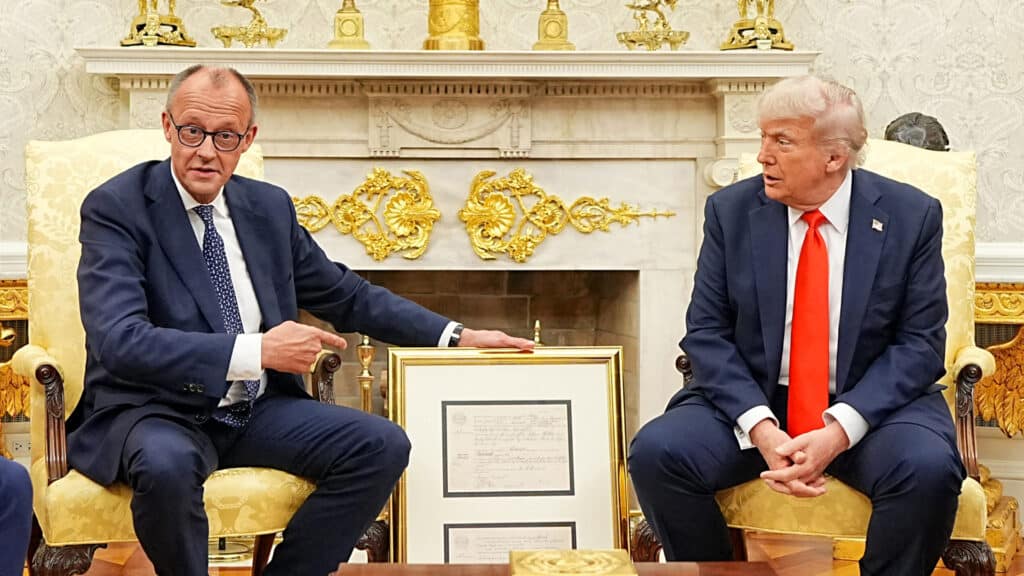
«That’s serious German,» Trump said in response. «I want to thank you for that. That’s beautiful. Thank you very much. Fantastic. We’ll put it up in a place of honor.»
Trump’s grandfather shared the same first name as Merz. For the German chancellor, the gift appeared to be a calculated attempt to connect with a leader known to value personal history and legacy.
Trump seemed less than enthusiastic, perhaps reluctant to be reminded of his family’s immigrant past, as reported by Der Spiegel. The two had discussed Trump’s grandfather in an earlier phone call, but it’s possible Merz read too much into that exchange. In the end, however, one conclusion seems hard to dispute: Merz’s diplomatic overture succeeded «because it didn’t fail.»

